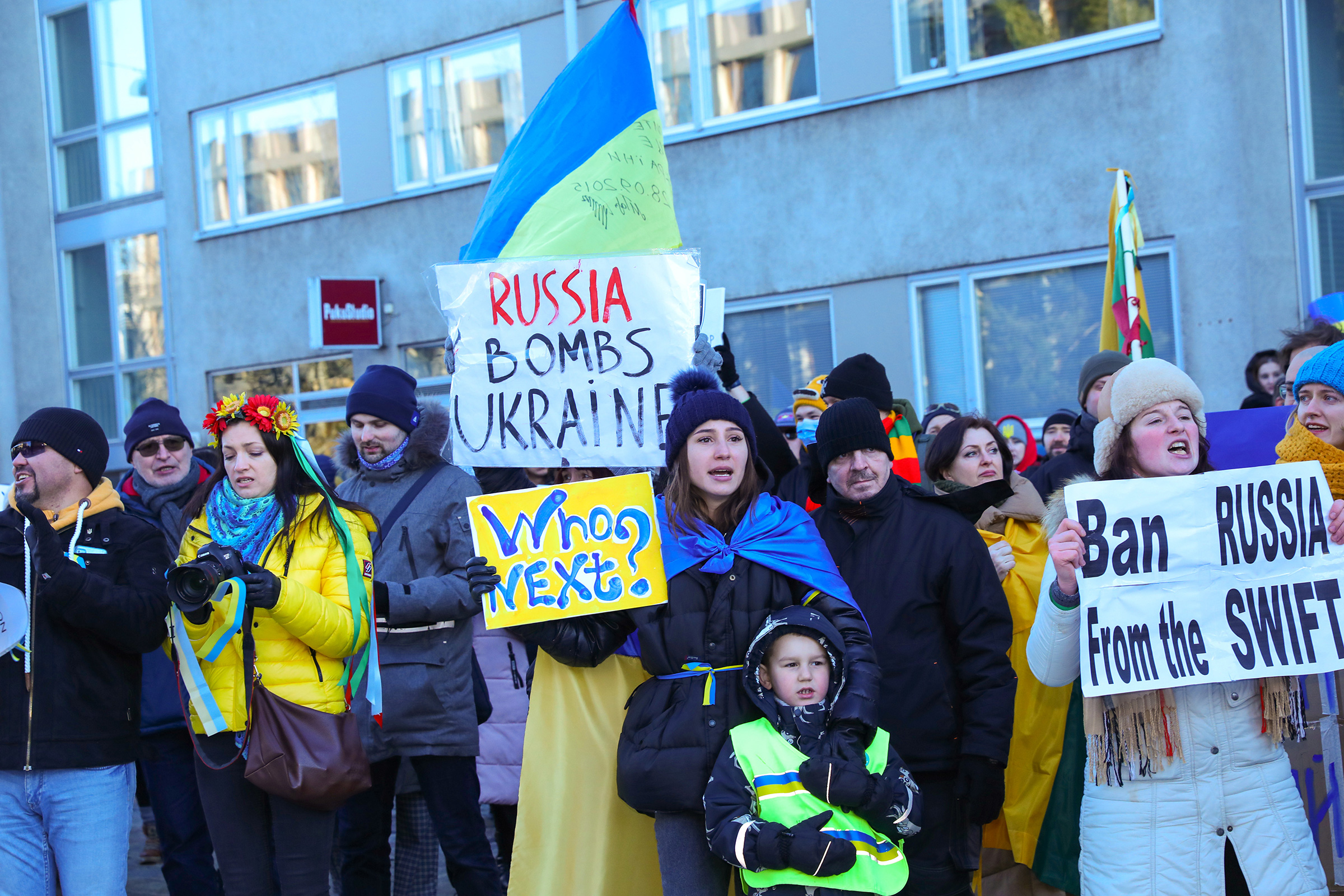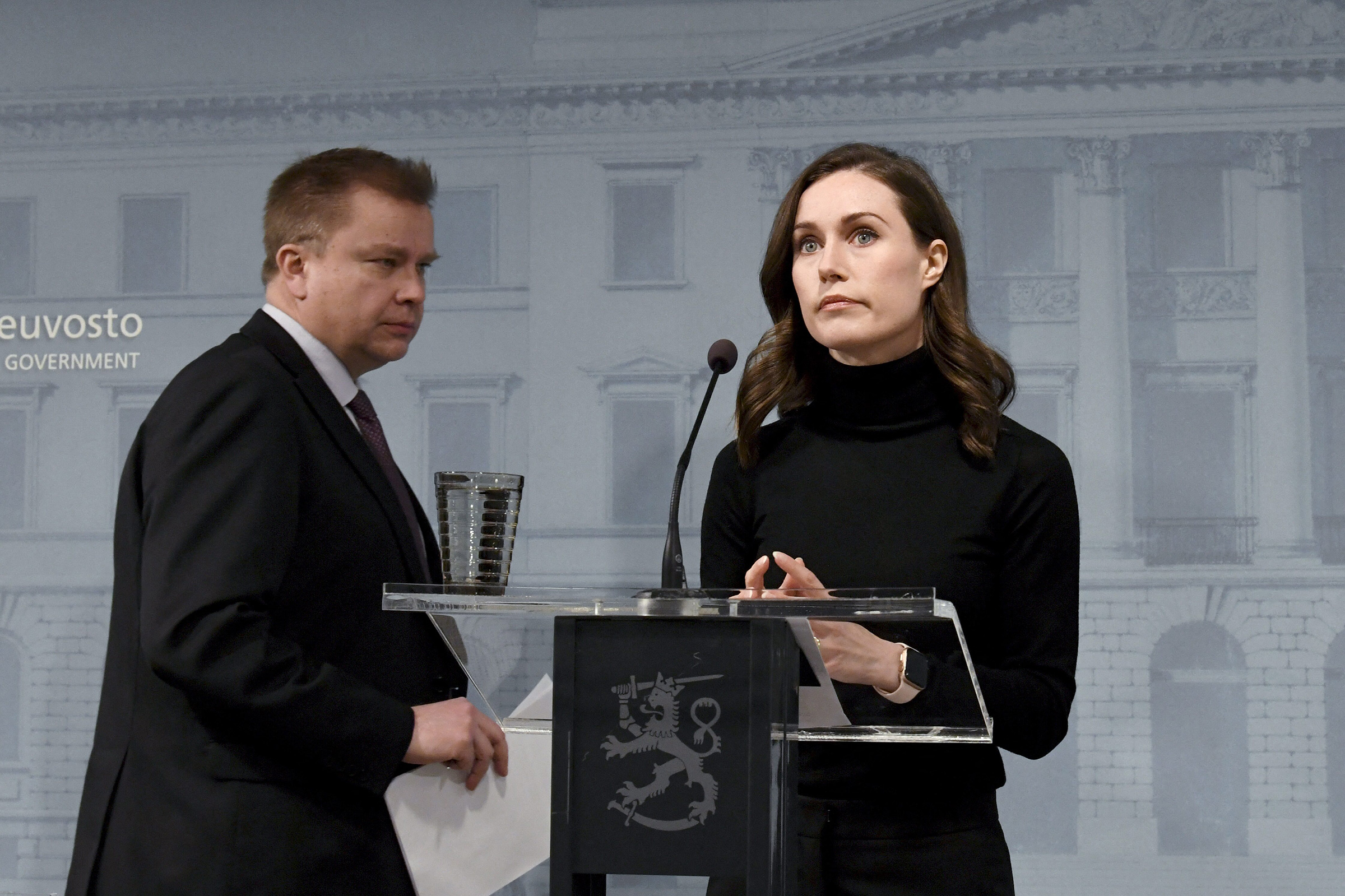
In 1961, as the Cold War was building to its peak, Finnish foreign minister and former Prime Minister Rolf Torngren tried to explain his country’s neutrality policy to the rest of the world. “To some,” he recognized, “the existence of an independent neutral state, a Western democracy, next door to the Soviet Union, maintaining its freedom in friendship with, not in defiance of, its powerful neighbor appears in itself to be a paradox.”
Fifty years later, Finnish neutrality is again being questioned, but this time by the Finns themselves. The Russian invasion of Ukraine has prompted an unprecedented shift in public opinion in Finland and its neighbor, fellow long-time neutral Sweden. Yet even as efforts to pursue membership gather steam, the paradox that Torngren described continues: the very process of seeking NATO’s protection may itself escalate the risk these Nordic countries face.
“For the first time, a majority of Finland’s population is indicating that they are in favor of NATO membership,” Finnish Foreign Minister Pekka Haavisto told TIME in a Mar. 12 phone interview. “And of course it has become obvious that political parties have been starting their discussions about the security situation and how it affects Finland’s position with regards to NATO. So the political process has started.”
As a borderland between East and West, Finland’s neutrality dates back to the end of World War II. In 1948, it signed a treaty with Moscow in which it promised to join neither NATO nor the Soviet-led Warsaw Pact. Although it began in the 1970s to strengthen alliances with the West and joined the European Union in 1995, support for membership in NATO has, until very recently, remained below 30%, roughly the same as in Sweden.
Read More: Ukraine Needs More Military Aid from NATO
That percentage began to creep up earlier this year, as Russian threats to Ukraine, accompanied by potentially suspicious activity around the Baltic Sea (drones flying at night over sensitive sites in and around Stockholm, a Russian cargo plane that took an unexpected detour over southern Finland) increased. But what had been a steady rise turned to an outright leap with the invasion of Ukraine on Feb 24. Polls conducted by newspapers in each country just days after the outbreak of the war put support for joining at a historic 51% in Sweden and 53% in Finland.
In Finland the shift in public opinion has been accompanied by popular efforts. Two separate citizens’ initiatives—one calling for a referendum on NATO, the other urging the President and other authorities to bring a proposal for accession before Parliament— have each garnered the necessary 50,000 signatures to trigger their consideration in the legislature; debate is expected to begin next week.
Matti Muukkonen, a law professor at the University of Eastern Finland, is one of the authors of the second initiative. Although he has long been in favor of Finland joining NATO, he and his colleagues submitted the initiative on March 3 because the Ukraine invasion had, in their view, drastically increased the urgency of accession. “Russia is ruthlessly working to create a buffer between itself and NATO,” he says. “In order to continue to enjoy fundamental and human rights in the future, Finland must make every effort to safeguard our sovereignty.”

Because it shares both an 800-mile border and a long and complicated history with Russia (Finland was part of the Russian empire from 1808 until 1917, and lost territory to the Soviet Union in the Winter War of 1939-40), the country is keenly alert to the potential threat posed by its powerful neighbor to the east. “Russia doesn’t view things a single country at a time,” says Mika Aaltola, director of the Finnish Institute of International Affairs. “They are using Ukraine to demonstrate their power, perhaps trying to ‘shock and awe’ a bit regionally, so that everyone in the region understands that if Russian security is not assured, no one’s security is assured.”
Russian foreign minister spokeswoman Maria Zakharova appeared to reinforce that message explicitly to the two Nordic countries the day after the Ukraine invasion. “It’s obvious,” she said at a press briefing in Moscow. “That if Finland and Sweden join NATO, which is first of all a military organization, it will entail serious military-political consequences, which would require retaliatory steps by the Russian Federation.” Her statement has since been repeated by others in Russia’s foreign ministry.
There are signs that Russia is already behaving aggressively in the region. On the day the second citizens’ initiative was launched, Finland’s largest banks were the target of a massive DDoS attack. Because Finns generally use their banking IDs for digital services (like signing the petition), some experts saw the attack as an attempt to block the initiative. And on March 16, the Russian embassy in Finland called on Russians there to report “cases of violation of rights, discrimination and incitement of hatred against citizens of the Russian Federation and native speakers of the Russian language to the consular department of the embassy by email,” exactly the same kind of invented incidents used to justify the invasion of Ukraine. Finnish officials are also concerned that Belarus, a Russian ally, may be planning to flood its border with immigrants, a tactic it is employed last summer, when the country invited and enabled tens of thousands of migrants mostly from Iraqi Kurdistan to cross European Union borders and created a crisis.
Read More: A Ukrainian Photographer Documents Invasion of His Country
Those kinds of events have convinced Muukkonen and other NATO supporters that Finland needs to act quickly, which is why he and the initiative co-authors want the government to propose accession, rather than waiting for a referendum. But in addition to the perceived urgency of the situation, they also see the current moment as actually safer. “Russia is deep in the mud of Ukraine,” he says. “It has concentrated a large part of its forces there, so it would be almost the best time to join in this situation.”
Both the Swedish and Finnish governments have sent arms shipments to Ukraine, and increased their cooperation with NATO, but they are taking a decidedly more measured approach to the question of actually joining. Although Prime Minister Sanne Marin has shown herself more open to exploring the question of membership than her Swedish counterpart, Magdalena Andersson (who last week dismissed the prospect, arguing that Sweden’s application would “further destabilize the situation”), she nonetheless cautioned that the debate would be “thorough,” and neither she nor President Sauli Niinisto have yet expressed their opinion on what they think the outcome should be.
As for the foreign minister, he emphasizes that another issue takes precedent. “At the moment, I think it’s very important that we concentrate solely on solving the war in Ukraine,” says Haavisto. “This has been our message to our partners in NATO and the European Union; that we need to concentrate on what can be the steps to stop this very unfair war against Ukraine and the Ukrainian population. As for what’s happening now in Sweden and Finland, that’s a long-term issue which requires more analysis and more discussion.”
But if current leaders in Sweden and Finland are circumspect about potential membership, the same cannot be said for their former leaders. Former Swedish prime minister Carl Bildt, argues in a Washington Post Op-Ed, “There is no way back to a past of illusionary neutrality. The choice now is between remaining in a slightly uncertain in-between or recognizing a new reality and taking the step into full membership.”
Former Finnish prime minister Alexander Stubb greeted the editorial with a bit of tongue-in-cheek rivalry. “Dear Carl Bildt,” he wrote on Twitter, “I think you are too conservative on FIN. Our train left the station, the process is in motion and the end station is at @NATO HQ. This time, Finland is showing the way.”
More Must-Reads from TIME
- Cybersecurity Experts Are Sounding the Alarm on DOGE
- Meet the 2025 Women of the Year
- The Harsh Truth About Disability Inclusion
- Why Do More Young Adults Have Cancer?
- Colman Domingo Leads With Radical Love
- How to Get Better at Doing Things Alone
- Michelle Zauner Stares Down the Darkness
Contact us at letters@time.com